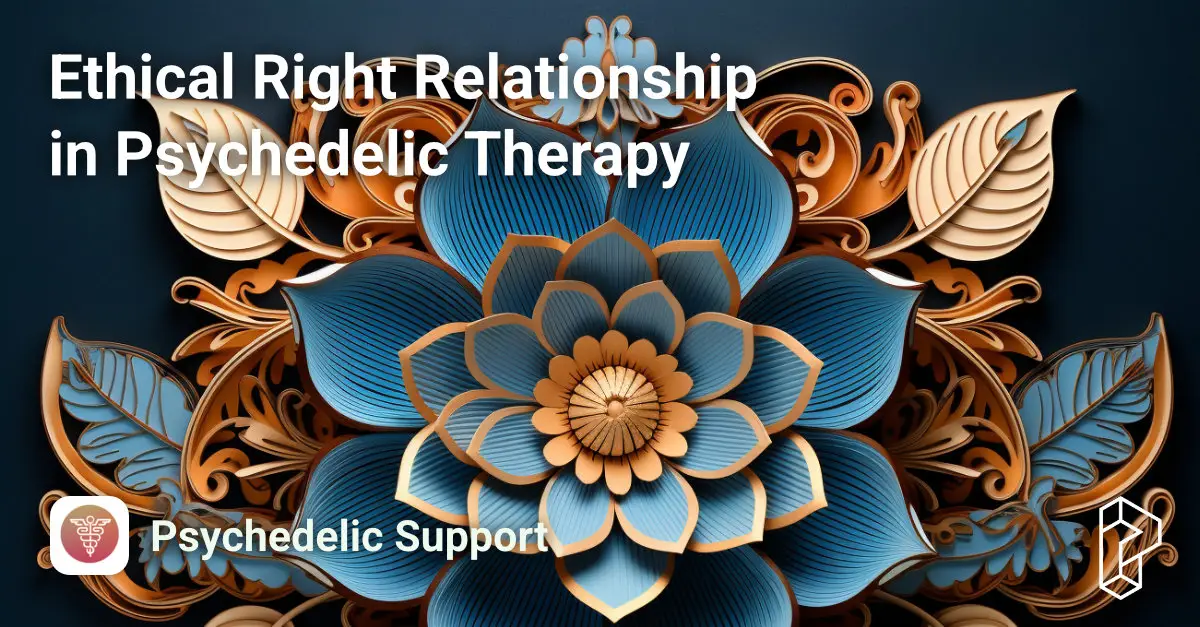Ethical Right Relationship in Psychedelic Therapy
Ethical Right Relationship in Psychedelic Therapy (Ethics 102) equips professionals with nuanced ethical tools for psychedelic therapy.
- 50 Enrolled
- Professional
- Last updated Dec '23
- English
Course Description
The course Ethical Right Relationship in Psychedelic Therapy (Ethics 102) delves into the nuanced ethical considerations of psychedelic-assisted psychotherapy. Recognizing that ethics extend beyond mere laws and guidelines, the course emphasizes the importance of relationships in the healing process.
It equips professionals with the tools to create the “Right Conditions” that allow the client’s inner healing mechanisms to be activated effectively. The course adopts a self-reflective and self-compassionate approach, focusing on the motivations, attitudes, and biases underlying client interactions. This internal focus complements traditional ethics education’s external, behavioural system, offering a more holistic understanding of ethical practice.
Designed for professionals in the field of psychedelics, including psychologists, therapists, mentors, and medical professionals, the course covers various topics. These include the ethical needs of clients undergoing psychedelic-assisted psychotherapy, gaps in traditional Western ethical models, and the application of mindfulness in ethical decision-making.
The course also introduces a “Chart of Professional Vulnerabilities to Ethical Misconduct,” helping practitioners identify their motivations and triggers. Part two of a series includes a review of the preceding Ethics 101 course, offering a comprehensive ethical framework for psychedelic therapy.

Tatayo
Instructor
About Instructor
Tatayo (“Fruit of the Wind”) first arrived in Gabon in 1971 at the age of 21 and became a Gabonese citizen. In 1979, he became the first white person to be initiated into the Bwiti Fang tradition in Gabon. In 1994, he was initiated into the Misokko tradition. As a guide for numerous expeditions and missions, including those of National Geographic, the BBC, and others, Tatayo is considered to have “opened the door” to westerners in Gabon.
Frequently Asked Questions
$39
This course includes
- Lectures 1
- Duration 1 Hours
- Skills Professional
- Language English
- Availability Always
- Certificate CE
Transform Your Life with FLO CoachingAD
Ready to break through personal barriers and discover a deeper sense of fulfillment? FLO Coaching offers one-on-one psychedelic truffle journeys in the Netherlands, guided by experienced professionals. Our carefully crafted experiences combine the power of psychedelics with personalized coaching, helping you gain profound insights and create lasting positive changes.
Elevate your personal development to new heights in a safe, legal, and supportive environment. From preparation to integration, we're there every step of your transformative journey.
Take the first step towards a more resilient, meaningful life. Schedule a free call with FLO Coaching today and unlock your full potential.
